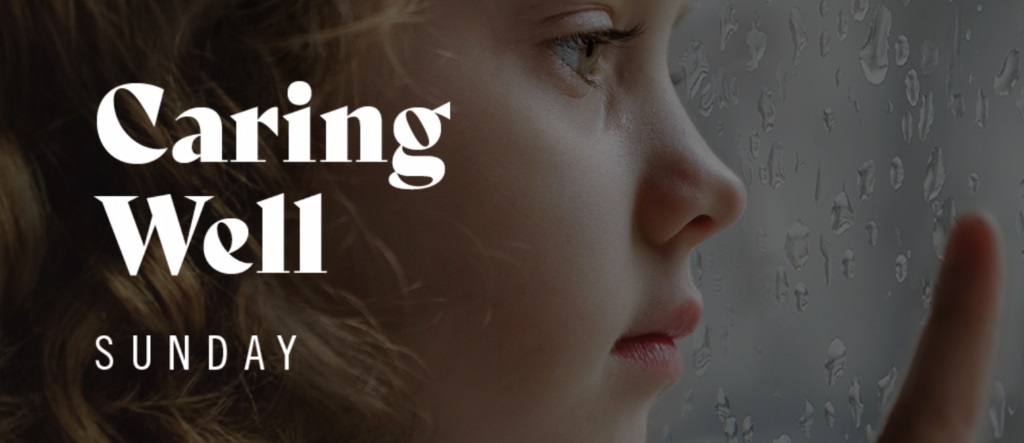Caring Well Sunday, Sept. 24, is on the SBC Calendar this year for the first time, giving churches an opportunity to acknowledge the emotional toll of sexual abuse and commit to ensuring congregations are safe places.
“We may never even know who they are in our congregations, but I can guarantee there’s not a single congregation in our denomination that doesn’t have somebody that’s been affected by this issue,” Palmer Williams, general counsel and senior policy advisor for the Ethics & Religious Liberty Commission, told Baptist Press.
Keith Myer, pastor of Harvest Baptist Church in Salisbury, Maryland, made a motion at the 2022 SBC Annual Meeting to add Caring Well Sunday to the convention calendar, and he said “there are a lot of hurting people in our pews that need to be seen.”
“Part of caring for people is knowing this happens,” Myer said, referring to abuse. “It doesn’t just happen in churches. It happens in homes. It happens in dating relationships. It happens at college.
“There are all kinds of occasions where people will be harmed, and if they can’t come to the church and say, ‘I need help,’ and if shepherds aren’t ready to say, ‘Let’s get you the help that you need,’ I think we’re limiting our ministry impact,” Myer told BP.
‘Practical, tangible’
Heather Evans, an advisor to the SBC’s Abuse Reform Implementation Task Force, said Caring Well Sunday is a “practical, tangible” way that churches can acknowledge the problem of sexual abuse and demonstrate a commitment to handling the issue appropriately.
“It’s simply saying, ‘We are setting aside one Sunday in a year at the very least to acknowledge that there are individuals in our churches that have experienced abuse,’” Evans said, adding that it has the capacity to help survivors come forward to seek healing.
Myer, chairman of the Baptist Convention of Maryland/Delaware’s sexual abuse task force, has developed a toolkit for Caring Well Sunday available at bcmd.org/pathways-caringwellsunday, and he’s urging churches nationwide to use its components.
The resources include a prayer guide with daily prompts, a bulletin insert, a social media image and two sample sermons. Some pastors, Myer said, will not feel comfortable setting aside the entire sermon time to address abuse, but he encourages them to use the bulletin insert or the prayer guide or simply to make a statement somewhere in the service.
“Statistics say one in three women and one in four men have been sexually abused,” Myer said. People need to hear from their churches that such deeply-held secrets are not their fault, they are not second-class and the Lord still loves them, he said.
Speaking up
“Survivors don’t often feel comfortable or safe speaking up,” Myer said. “They feel like maybe they’re going to get shamed if they disclose to their pastor. Speaking up about this and addressing it will let somebody know, ‘I can talk to my pastor about this. He’s not going to condemn me.’
“I think that the more we talk about this in our churches, the more we remove the stigma and say that we take protection and response seriously, the greater likelihood that people are going to seek out a discussion with a pastor or say, ‘Is there a woman in the church I can talk to? Do you know of counseling resources you can refer me to?’” Myer said.
The average age of disclosure is 52, Myer said, “so the majority of survivors carry this most of their lives before they say anything or share, if they share at all.” Caring Well Sunday is “a tremendous opportunity to minister to people.”
At a minimum, what churches could do on Caring Well Sunday is tell what they’ve done in the past year to prevent abuse, Evans said, such as implementing background checks and training children’s workers.
Evans pointed to sbcabuseprevention.com, where a ministry toolkit addresses five action steps: train, screen, protect, report and care. “Perhaps a church can look at that and say, ‘Let’s just take one of those for this Sunday and let’s talk about what we’re doing for training or what we hope to do for training in the next year,’” she said.
If a survivor comes forward after Caring Well Sunday, Evans, a clinical social worker, said an appropriate response would be to express support and belief.
‘We are with you’
“Even just saying, ‘We are with you. We are so sorry this happened. This mattered. We want to walk with you in this,’” she said. “Depending on the age, there are mandatory reporting laws. If they are under the age of 18, it would need to be reported. Looking into mandatory reporting laws for your state and walking a survivor through the reporting process [would be helpful].”
Walking alongside survivors is an important response, Evans said, and that could include linking them with trauma-informed counselors and providing funds for counseling.
“You could even do an offering and all of that money could be designated for a survivor care fund for your church so that if a survivor came forward and was in need of counseling, there would be resources for them to receive counseling for one year or something like that,” Evans said.
Follow-up care doesn’t have to be done only by the pastor, she said. The pastor could appoint a care team of a few people who have some knowledge or experience of abuse or are willing to read and learn about the subject in order to meet survivors where they are and represent Jesus, Evans said.
“Sometimes the church doesn’t feel safe for survivors, particularly if they were abused by a church leader or by a Christian family member,” Evans said. “Scripture may have even been misused against them. So sometimes going to church, going to small group Bible studies, hearing the Scriptures, even hearing worship songs – things that we might assume would bring comfort – can actually be trauma triggers for a survivor.”
Follow-up care
Pastors may need to keep in mind that distance from a church community doesn’t necessarily mean a survivor is out of fellowship with God or living in sin, Evans said. It may mean it’s very difficult for them to trust or to feel safe in church. That’s what Caring Well Sunday and other follow-up can help address, she said.
The ERLC has created bulletin inserts for this Sunday, that can be downloaded here.
“Every church who can possibly participate will be serving their congregation well, and they probably won’t even know the number of people they’ve touched,” the ERLC’s Williams said. “Letting our congregations and members know that they’re seen and that the Lord sees their hurt and He cares for them I think is the first thing that we’re doing on Caring Well Sunday.”
For pastors and leaders who have been hesitant or afraid to speak up on the difficult issue of abuse, Caring Well Sunday “gives them an opportunity to unapologetically do so,” Megan Lively, an abuse survivor and member of Peace Church in Wilson, North Carolina, told BP.
“If Jesus were among us today, He would boldly proclaim that He was sent to preach the Gospel to the brokenhearted,” Lively said. “Jesus would tell us that in Him we can experience life-change and the peace that passes all understanding, and that He can bind up all our wounds.
“What a gift that pastors have been called to do the same. Caring well for the abused isn’t a social issue, it is a gospel issue, and I am hoping that Caring Well Sunday will help Southern Baptists see it as one.”
EDITOR’S NOTE — This article was written by Erin Roach and published at Baptist Press, news service of the Southern Baptist Convention.







Share with others: